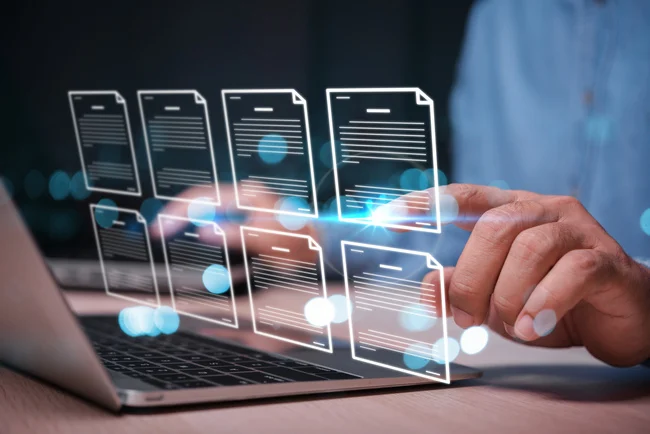In the digital age, where technology continues to reshape industries, paperless accounting has emerged as a transformative practice that offers numerous benefits to businesses. By replacing traditional paper-based accounting methods with digital solutions, organizations can streamline their financial processes, reduce environmental impact, and enhance overall efficiency. This article explores the concept of paperless accounting, its advantages, implementation strategies, and the role it plays in fostering sustainable business practices.
The Transition to Paperless Accounting
Paperless accounting, also known as digital accounting or e-accounting, involves the use of electronic systems and software to manage financial transactions, records, and reporting. This approach replaces manual, paper-intensive tasks with automated digital processes, eliminating the need for physical documents such as invoices, receipts, and financial statements.
Advantages of Paperless Accounting
- Enhanced Efficiency: Paperless accounting significantly reduces the time and effort required for tasks like data entry, document retrieval, and reconciliation. Automated processes minimize the risk of human errors and streamline workflows.
- Cost Savings: Adopting paperless accounting can lead to substantial cost savings by reducing expenses associated with paper, printing, storage, and document handling. Additionally, businesses can allocate resources to more value-added activities.
- Environmental Sustainability: Going paperless contributes to a greener environment by reducing paper consumption, minimizing waste, and decreasing carbon emissions associated with printing and transportation.
- Real-Time Accessibility: Digital records are easily accessible from any location with an internet connection, enabling remote access, collaboration, and immediate decision-making.
- Improved Accuracy: Paperless accounting systems often include built-in checks and validations, reducing the likelihood of errors in data entry, calculations, and reporting.
- Data Security: Electronic records are more secure than physical documents. Encryption, user authentication, and data backups ensure that sensitive financial information is protected.
- Auditing and Compliance: Digital records can be easily audited and tracked, simplifying compliance with regulatory requirements and facilitating internal and external audits.
Implementing Paperless Accounting
- Choose the Right Software: Select a robust accounting software that meets your business needs and offers features like digital invoicing, online payment processing, and document management.
- Document Scanning and Digitization: Convert existing paper documents into digital format by scanning and uploading them to your accounting software. Optical character recognition (OCR) technology can be used to extract text and data from scanned documents.
- Digital Payment and Invoicing: Use online payment platforms and electronic invoicing to send and receive payments digitally, reducing the reliance on paper checks and physical invoices.
- Cloud Storage and Backup: Store your electronic financial records securely in the cloud to ensure accessibility, data protection, and disaster recovery.
- Employee Training: Provide training to your finance team on how to use the accounting software effectively and encourage the adoption of paperless practices.
- Change Management: Foster a culture of digital transformation within your organization by promoting the benefits of paperless accounting and encouraging buy-in from stakeholders.
- Gradual Transition: If transitioning entirely to paperless seems overwhelming, start by implementing paperless practices in specific areas and gradually expand to other processes.
Conclusion
Paperless accounting represents a forward-thinking approach that aligns with the demands of the digital era and the growing emphasis on sustainability. By adopting electronic systems and embracing paperless practices, businesses can achieve heightened efficiency, cost savings, and improved data security. Moreover, the environmental benefits of reduced paper usage contribute to a more sustainable future. As technology continues to evolve, the transition to paperless accounting is poised to become an essential element of modern financial management, enabling organizations to thrive in an increasingly interconnected and eco-conscious world.

